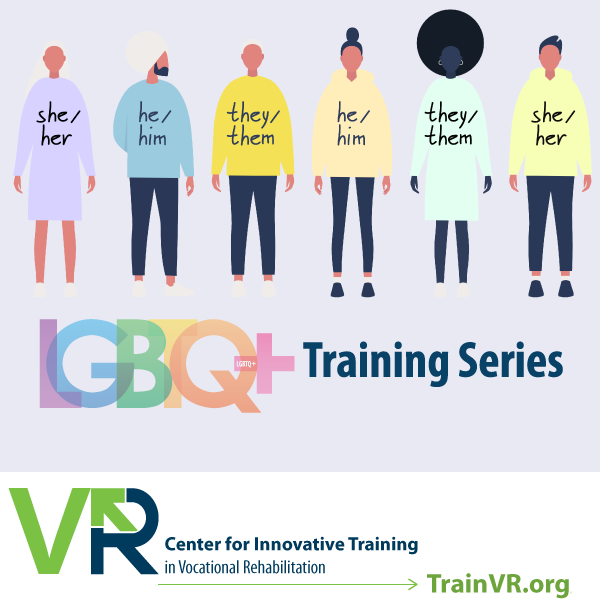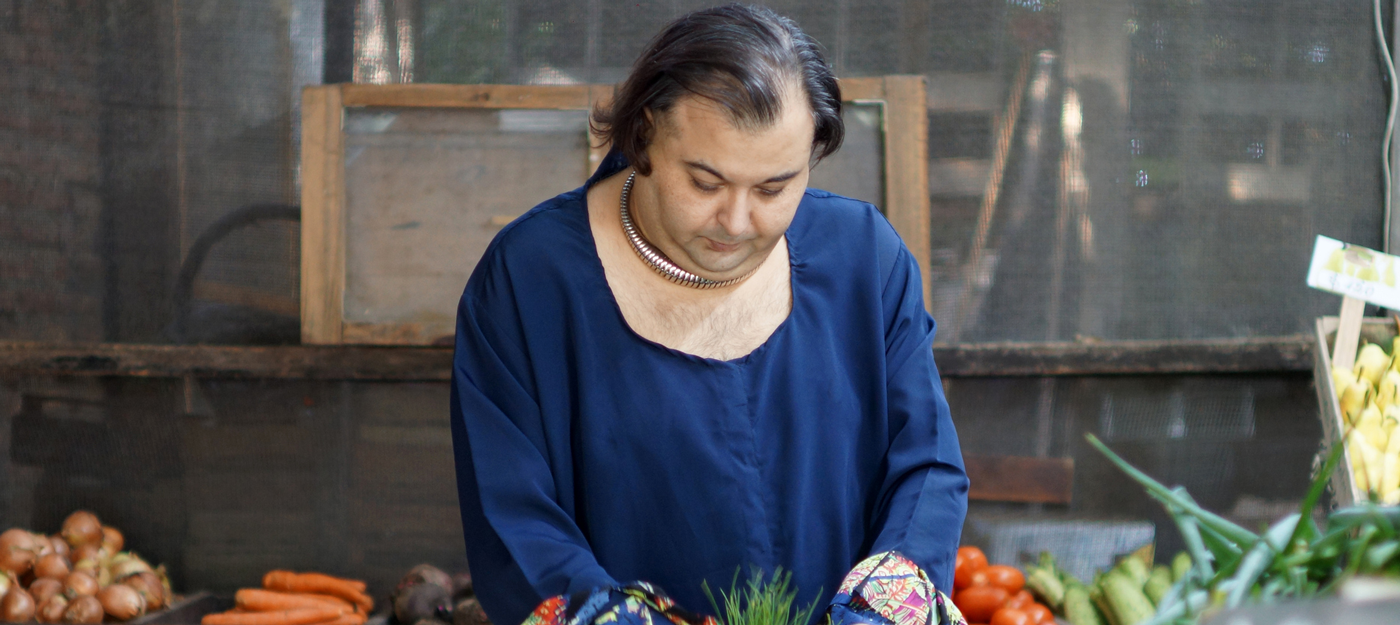Our identities are at the core of who we are. These characteristics and personality traits guide how we move through the world around us, and how we interact with others.
Vocational rehabilitation counselors see first-hand how damaging it is when others make assumptions about the identity of a person with a disability. This is exponentially true for people at the intersection of disability and LGBTQ+.

This information is from the Center for Innovative Training in Vocational Rehabilitation (CIT-VR) at The George Washington University from their training series: LGBTQ+ and Disability.
Understanding LGBTQ+
Intersection of LGBTQ+ and Disability
An estimated 3.5 million LGBTQ+ people report having a disability including:
- 2 in 5 transgender adults
- 40% of bisexual men
- 36% lesbian women
- 36% bisexual women
- 26% of gay men
Workplace Disparity
Self-reports estimate that approximately 25% of people who are LGBTQ+ feel they have been discriminated against within the last 18 months. In addition:
- Until 2020 people who identified as LGBTQ+ had no legal protection against job discrimination
- People who are LGBTQ+ are overrepresented in unemployment roles
- In general, heterosexual people make more money than do people who are LGBTQ+
A Counselor's Role
People at the intersection of LGBTQ+ and disability are often marginalized, invalidated, or made to feel invisible. It is of utmost importance to build a relationship based on trust and safety. Counselors who have not previously worked with people who identify as LGBTQ+ need to be aware of possible personal biases, to increase their knowledge, and to avoid values imposition.
Learn about resources in your community for LGBTQ+ affirming services and supports.
Practical Guidance
Here are some things vocational rehabilitation counselors can do:
Creating a Welcoming Space
- Consider your application and intake process.
- Ask about preferred name/name you go by
- Include your own pronouns when introducing yourself
- Ask about pronouns
- Understand and use language of LGBTQ+ community
- Research memes and cultural references
- Provide appropriate accessibility accommodations
Build a Sense of Safety
- Ask people what they need
- Use correct pronouns: practice!
- Gender identity/sexual orientation is often not the main or only concern
- Consider accessibility and privacy needs
Be an LGBTQ+ Ally
- Model correct gender pronouns and name
- Correct people as needed
- Provide resources
- Get involved
- Assist in educating others
- Create open and affirming office spaces (flyers, stickers, intake forms, all gender restrooms, training, etc.)
- Make it safe for people to tell you their stories without judgment
Get More Information:
The information above was created by the Center for Innovative Training in Vocational Rehabilitation (CIT-VR) at The George Washington University. Check out their training series below!

